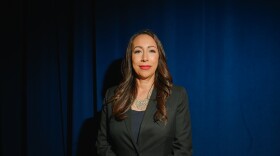MELISSA BLOCK, HOST:
In Pakistan, the new prime minister, celebrated former cricket player Imran Khan has promised to change the country by curbing corruption and pulling people out of poverty. First, his government has to save Pakistan's economy. NPR's Diaa Hadid reports from Jhelum.
DIAA HADID, BYLINE: Just a few days into Imran Khan's government, things are already looking different. His information minister, Fawad Chaudhry, says he's ordered state-run TV and radio to stop censoring its news.
FAWAD CHAUDHRY: To give people a sense of change, we have to move quickly.
HADID: Khan's promised lots of change. In his inaugural speech last week, he said he'd improve hospitals, police and schools.
CHAUDHRY: He has outlined that - how he wants to change Pakistan. We want a Pakistan where people are cared about. The poor and the downtrodden will be helped.
HADID: Khan's model's inspired by how the Prophet Muhammad governed in Islam's earliest days. Khan calls it an Islamic welfare state. He sees it like a modern Western country with progressive taxation and human rights and Islam.
MOSHARRAF ZAIDI: Stockholm without the night clubs and bars.
HADID: That's columnist Mosharraf Zaidi. He also co-hosts a podcast called How to Pakistan. He says Khan wants a Western liberal democracy but...
ZAIDI: Without the West and without the liberal insofar as freedoms are concerned.
HADID: But first, Khan has to fix the economy. Pakistan's in enormous debt. And it may need an IMF bailout. And here it gets trickier. Pakistan needs U.S. support for that loan. But relations are strained because the Trump administration accuses Pakistan of harboring militants who target American forces in neighboring Afghanistan. And the Trump administration will likely want Pakistan to change its behavior before signing off on the bailout.
Now Pakistan denies all such allegations. And analysts here say it's not the Khan government but Pakistan's most powerful institution, the army, that controls policy toward Afghanistan. And while Khan's a nationalist whose views generally align with the army, critics say it's unlikely he'll ever challenge them because they allege the army helped Khan get elected. Chaudhry, the information minister, sees things differently.
CHAUDHRY: Prime Minister Imran Khan has the confidence of all institutions - be it judiciary, be it army. This is the huge advantage we have right now in Pakistan.
HADID: The test of all this will likely come very soon. U.S. Secretary of State Mike Pompeo is expected to visit Pakistan this week. He's likely to discuss the IMF bailout and Afghanistan. This is Zaidi, the podcaster.
ZAIDI: Leadership, civilian and military, is going to need to find a way of being exactly on the same page by the time Mike Pompeo gets here.
HADID: Now the information minister, Chaudhry, says there's a chance that everybody's interests might align. Washington is trying to talk to the Taliban. And Pakistan can help getting them on board. Khan himself has always advocated negotiations with the Taliban. But even if Khan survives these initial hurdles, given Pakistan's history, his premiership is unlikely to be smooth sailing. This is Amber Shamsi. She's a political analyst and a TV host.
AMBER SHAMSI: But no prime minister in Pakistan has completed his or her term. And it has generally been because they have come into conflict with the military establishment.
HADID: So perhaps the challenge before Khan is how he deals with the old Pakistan - keeping the military happy while trying to transform the country into something new. Diaa Hadid, NPR News, Jhelum.
(SOUNDBITE OF EMANCIPATOR'S "ABRACADABRA") Transcript provided by NPR, Copyright NPR.







